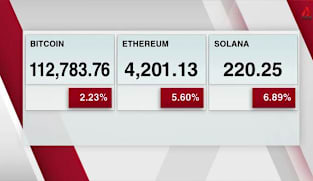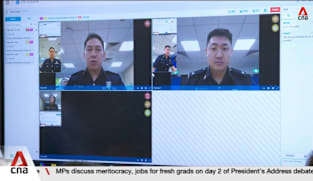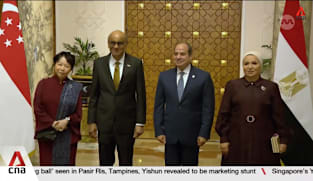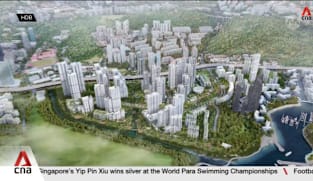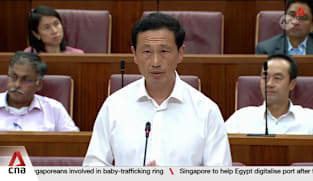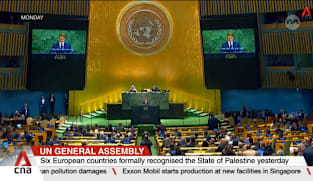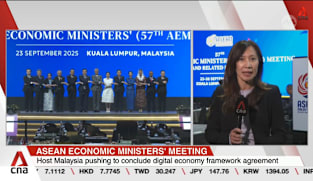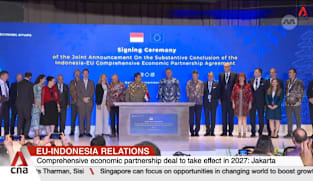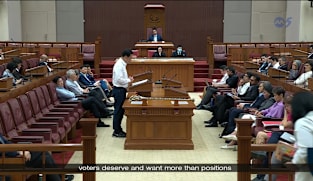Committee of Supply 2023 debate, Day 7: Indranee Rajah on principles for effective Parliament
For Parliament to be effective, there must be robust debate so that policies and recommendations can be scrutinised and assumptions tested, said Leader of the House Indranee Rajah. But the quality and integrity of the debate also matter greatly, she said in Parliament on Monday (Mar 6). She agreed with the principles to guide how issues should be brought up and debated, which were highlighted by NMP Cheng Hsing Yao. On the first principle, Ms Indranee said MPs are expected to be able to substantiate any statements made by them if challenged. But beyond factual accuracy is the deeper underlying principle of honesty and integrity because people must be able to trust what they say. It is equally important to guard against half-truths or misleading statements and innuendos which suggest false things without actually saying so. Turning to the second principle of benefits and trade-offs, she warned against over-simplifying issues as it does not give a true picture. Advocating a position without highlighting relevant downsides is a disservice to the people, she said. Advancing generous policies without telling people how they will be paid for or where the money to pay for it ultimately comes creates false hopes which will ultimately end in disappointment, she added. On the third principle of being constructive, Ms Indranee said at the end of the day, MPs must have the same overriding objective, which is to improve the lives of Singaporeans and help Singapore prosper. On the fourth principle of avoiding polarisation, she stressed the need to avoid the politics of division. She said there is a difference between reflecting genuine ground concerns and the deliberate stoking of anger and creating or intensifying divides which is not only wrong, but dangerous. Ms Indranee added one more point to Mr Cheng's four principles, which is the need to consistently endeavour to do what is right and avoid a descent into populism. “Parliament’s deliberations should shape the public discourse and set the direction for the country. We have to think not only about the ‘here and now’ but also for the future. We must think not only for one group but for all Singaporeans. Singapore is unique and special and we have come this far because our Parliaments before us did what was right for us. That task is now ours and we must discharge it to the best of our abilities,” she said.
For Parliament to be effective, there must be robust debate so that policies and recommendations can be scrutinised and assumptions tested, said Leader of the House Indranee Rajah. But the quality and integrity of the debate also matter greatly, she said in Parliament on Monday (Mar 6). She agreed with the principles to guide how issues should be brought up and debated, which were highlighted by NMP Cheng Hsing Yao. On the first principle, Ms Indranee said MPs are expected to be able to substantiate any statements made by them if challenged. But beyond factual accuracy is the deeper underlying principle of honesty and integrity because people must be able to trust what they say. It is equally important to guard against half-truths or misleading statements and innuendos which suggest false things without actually saying so. Turning to the second principle of benefits and trade-offs, she warned against over-simplifying issues as it does not give a true picture. Advocating a position without highlighting relevant downsides is a disservice to the people, she said. Advancing generous policies without telling people how they will be paid for or where the money to pay for it ultimately comes creates false hopes which will ultimately end in disappointment, she added. On the third principle of being constructive, Ms Indranee said at the end of the day, MPs must have the same overriding objective, which is to improve the lives of Singaporeans and help Singapore prosper. On the fourth principle of avoiding polarisation, she stressed the need to avoid the politics of division. She said there is a difference between reflecting genuine ground concerns and the deliberate stoking of anger and creating or intensifying divides which is not only wrong, but dangerous. Ms Indranee added one more point to Mr Cheng's four principles, which is the need to consistently endeavour to do what is right and avoid a descent into populism. “Parliament’s deliberations should shape the public discourse and set the direction for the country. We have to think not only about the ‘here and now’ but also for the future. We must think not only for one group but for all Singaporeans. Singapore is unique and special and we have come this far because our Parliaments before us did what was right for us. That task is now ours and we must discharge it to the best of our abilities,” she said.








